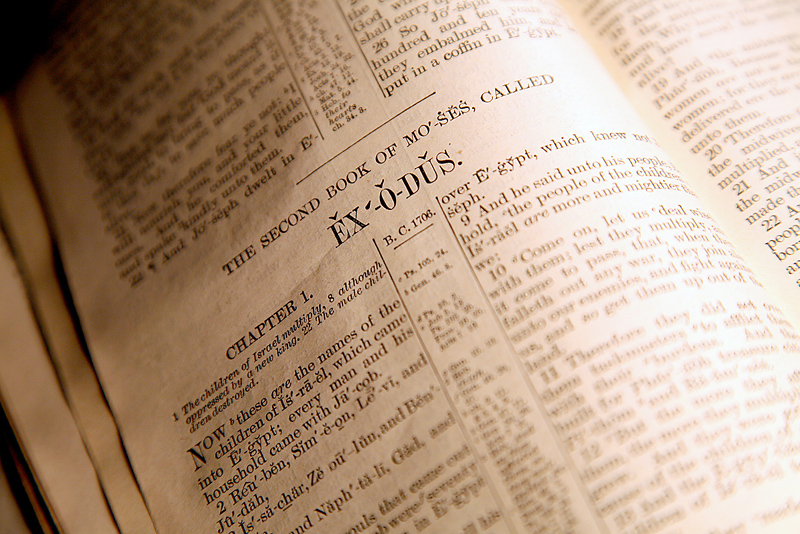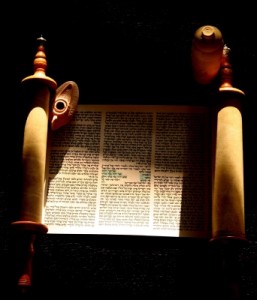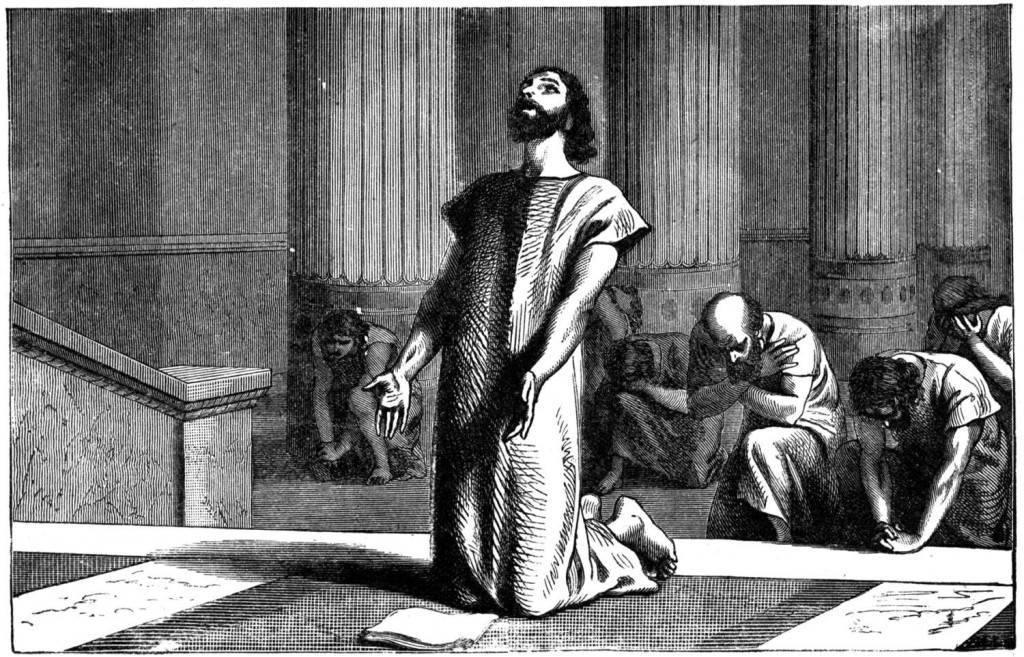
Exodus 21

Exodus 21:1, These are the judgments [mishpatim]. Mishpat(im) means “judgment, justice, ordinance, sentence, legal decision or seat of judgment.” Most of these laws (as listed in chapters 21 through 23) are civil in nature and relate to our relationship with our fellow man (as summarized by the phrase, “you shall love your neighbor as yourself,” Lev 19:18). Therefore, most of these laws would correspond to the second half (the fifth through tenth) of the ten statements of Exodus 20. Some, however, relate to the first four commandments, which show man how to love Elohim (e.g. the seventh day Sabbath, and the prohibition of worshiping idols and pronouncing the names of pagan deities, tithing, obeying the Messenger of Elohim, and celebrating YHVH’s feasts).
In reality, chapters 21 to 23 are simply an expansion or extension of the fundamental principles laid down in YHVH’s ten statements of chapter 20. This makes the ten statements to be a remez or “a hint” suggesting that there are additional laws that form the larger body of YHVH’s Torah. The ten statements of Exodus 20 simply springboards us toward the larger body of YHVH’s legal structure that is laid out in his full Torah. The ten statements are like the cornerstone of the building of Torah. Each of these judgments can be traced back to a fundamental principle laid out in the ten statements. For example, the laws pertaining to servitude are to prevent men from stealing from his neighbor via debt and the consequences of one’s inability to pay one’s debts. The laws pertaining to physical violence against one’s neighbor are an extension of the law against murder, fornication and bestiality is an extension of the law against adultery, sorcery is an extension of the law against idolatry, afflicting the widows or fatherless is from the law against theft, slander comes out of the prohibition to lying, the biblical feasts or annual sabbaths spring out of the weekly Sabbath, and being obedient to the Messenger of YHVH comes out of the first and second statements about YHVH being the Elohim of Israel and following no other gods. Moreover, the death a person by someone’s animal is an expansion of the “thou shalt not murder” command. The charging of usury on loaned money is an expansion of the commands not to covet or steal. The land sabbath and annual sabbaths (appointed times or moedim) are an expansion of the weekly Sabbath.
It should be obvious to see how all of YHVH’s Torah commands spring from the original ten, which form the foundation for the rest of the Torah. Additionally, the approximately 1056 imperative commands found in the Testimony of Yeshua all spring from the original 613 commandments found in the Torah. YHVH’s Word would be in opposition to itself if any of the 1056 were to contradict or nullify any of the 613. If they did, that would make YHVH into a liar and his word inconsistent with itself. This cannot be (Mal 3:6; Heb 13:8; John 10:35)!
Exodus 21:6, Bore his ear. The servant who of his own freewill and out of love for his master chose to remain in his household forever was permanently marked in this manner to signify that he was willing to hear and obey all his master’s commands punctually. This is a spiritual picture of the disciples of Yeshua who chose to become his bond servants (e.g. Rom 1:1; Gal 1:10; Col 4:12; Tit 1:1; Jas 1:1; Jude 1; Rev 1:1; 15:3). Not only do the true disciples of Yeshua accept him as their Savior, but they submit to him as their Lord or Master. They accept the fact he has purchased them with his blood, and that they now owe their lives to him. They willing choose to dwell in his spiritual house forever, to serve him and to hear and to do all that he commands of them.
Forever. The Hebrew word olam translated as “forever” throughout the Scriptures means “as long as the conditions exist” and not necessarily “for eternity” as the meaning of the English word “forever” often implies. In this verse, forever obviously means “as long as the servant shall live” and not “for eternity.” When the Hebrew word v’ad translated as “and ever” is added to olam (forever), the concept of eternity is connoted (e.g. YHVH’s reign as king is for eternity, Exod 15:18; Ps 10:16; the resurrected righteous will live for eternity, Pss 21:4; 45:6; Dan 12:3; during the millennium, righteous redeemed Israelites will walk with YHVH for eternity, Mic 4:5; the righteous will keep YHVH’s Torah for eternity, Ps 119:44; the righteous will praise YHVH for eternity, Ps 145:1, 2, 21).

Exodus 21:22, Hurt a woman with child. This passage is one of the strongest pro-life, anti-abortion verses in the Scriptures. Clearly, this passage teaches that life begins in the womb. The penalty for a man who is responsible for the death of an unborn child is death (v. 23.) Could any clearer statement be made about how the Creator feels about the sanctity of life? Here are some statistics about abortion:
- 42 million abortions occur worldwide each year (that’s 115,000 per day).
- In 2008, 1.21 million abortions occurred in the U.S.
- From 1973 to 2008, 50 million legal abortions occurred in the U.S.
- 22 percent of all U.S. pregnancies end in abortion.
- In 2007, 84% of all abortions were performed on unmarried women.
- At current rates, nearly one-third of American women will have an abortion.
(Sources of information: abortionno.org/Resources/fastfacts.html; guttmacher.org/pubs/fb_induced_abortion.html; abort73.com/abortion_facts/us_abortion_statistics/ — this is now a dead link).
Thankfully, as of this writing, the abortion rate in the US is slowly, but steadily dropping. In 2000 according to the National Right to Life (NRL), 1.36 million babies were aborted. The Center for Disease Control (CDC) puts the number at 857,475. In 2014 according to the NRL the number of abortions in the US dropped to 926,240. According to the NRL the total number of abortions performed in the US from 1973 to 2013 was nearly 58.6 million, while the CDC puts the number at nearly 51.9 million.
The murder of the innocent children is perhaps the greatest sin that a nation can commit. Abortion is a form of child sacrifice, which is something many ancient cultures practiced (e.g. the Aztecs, Incas, Phoenicians, pre-Islamic Arabs, and the biblical Canaanites). In the Bible, YHVH condemns the practice of the heathens and apostate Israelites who made their children pass through the fire in the worship of the demon-god Moloch (see Lev 18:21; 20:2–5; Deut 12:30–31; 18:10). YHVH placed on the nation of Israel a severe judgment for sacrificing its children to Moloch. He promised that their cities would be destroyed and that their nation be conquered by foreigners and that the Jews would be taken captive (see Jer 7:30–34; 32:35–36).
Exodus 21:22 clearly delineates the Creator’s position that human life begins at conception (see also Ps 139:13–16; Jer 1:5; Luke 1:15, 41, 44), not at birth.
Exodus 21:26–27, Eye…Tooth.This is the well known “eye for an eye and tooth for a tooth passage.” This is a remez meaning that these verses lay out a principle that’s broadly applicable to many situations. That is to say, what this verse is teaching us is that justice is properly served when the crime fits the punishment—when the criminal is himself deprived of that which he deprived his victim. To be sure, such a punishment is a strong deterrent to criminality! In the case of one causing another an injury for which one can’t recompense the victim (in the case of a loss of an eye or tooth), the criminal must suffer the same fate as his victim. In the case where a criminal causes harm to another (such as theft), which can be repaid, it is the criminal’s responsibility to make restitution.
Exodus 22
Exodus 22:26, Take your neighbor’s garment. The standard clothing for a Hebrew peasant farmer was a tunic and loincloth. A cloak was added for colder weather and doubled as a sleeping blanket. These articles of clothing may have been the only ones a peasant possessed, since the Torah mandated that a cloak taken from a man in pledge by a creditor had to be returned to him by day’s end, so he would have a blanket with which to cover himself at night (see also Deut 24:12–13, 17).
Continue reading






